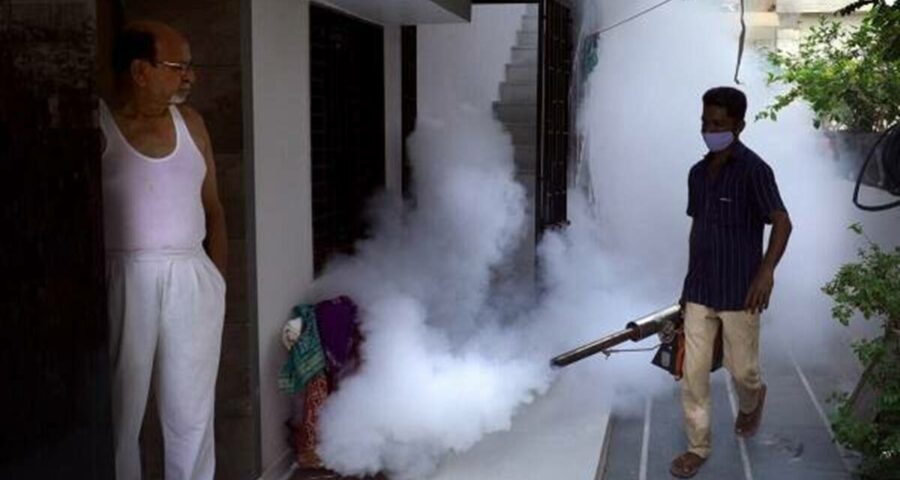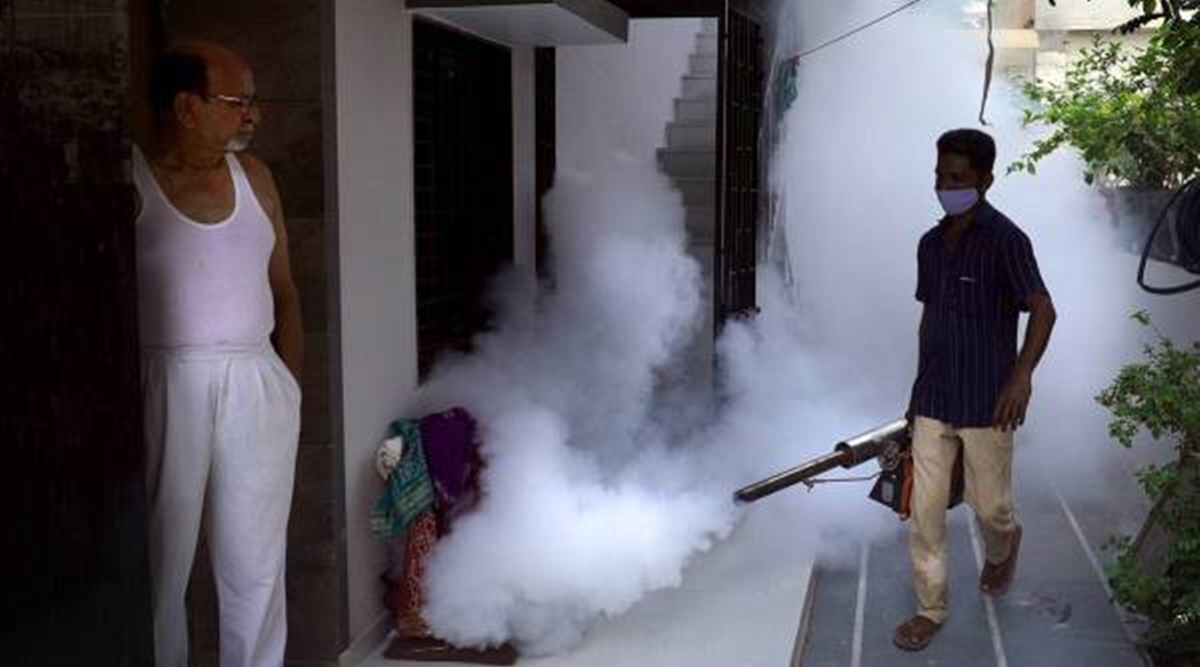In 2016, 86 cases of dengue were reported, followed by 66 cases in 2017, 94 cases in 2018, 22 and 51 cases in 2019 and 2020 respectively. The district reported 7 cases of dengue on Saturday.
After a rise in dengue cases in the city, which reached 108 cases Saturday, the district health department has ramped up fogging and screening for vector-borne diseases. This is the highest number of dengue cases in the city in the past five years. However, no dengue-related death has been reported in the city this year.
In 2016, 86 cases of dengue were reported, followed by 66 cases in 2017, 94 cases in 2018, 22 and 51 cases in 2019 and 2020 respectively. The district reported 7 cases of dengue on Saturday.
According to the district bulletin on malaria dengue, as many as 11,358 notices have been issued to households where mosquito larvae have been found. Officials said a prolonged monsoon and consequent waterlogging had caused a spike in dengue cases.
Dr Virender Yadav, chief medical officer, Gurgaon, said, “The cases are likely to rise in the coming weeks. The peak will be sometime between mid-October and November. People must take all precautions including ensuring there is no stagnant water lying in and around their houses, wearing full-sleeved clothes and maintaining cleanliness. About 200 fogging machines will soon be provided to village sarpanchs for fogging. A meeting of the task force is scheduled for Tuesday to take stock of the situation. Fogging has been ramped up and anti-larvae measures are being carried out.”
Earlier this week, the administration had shared two helpline numbers — 18001801817 and 0124-44055779 — where residents can call to request fogging in their areas between 9 am and 5 pm. A 30-bed facility has been set up at the civil hospital in Sector 10 for dengue patients.
The health department has so far identified Wazirabad, Palam Vihar, Basai, Kanhai Colony, Sarhaul village, Sector 21 A, Sector 39, Sector 12 A, Sector 47, Dharam Colony, Sector 12, Udyog Vihar phase 1, Jharsa village, as potential hotspots from where maximum cases have been reported.
Last month, the state health department had directed all the districts to ramp up surveillance and case detection by increasing sample collection for dengue/chikungunya, malaria from OPDs and flu corners at primary/community health centres and testing daily to avert an outbreak. The department had directed that a rapid action team be set up with a contingency plan to contain any outbreak and for all migratory population to be screened for suspected cases.
Source: Read Full Article


